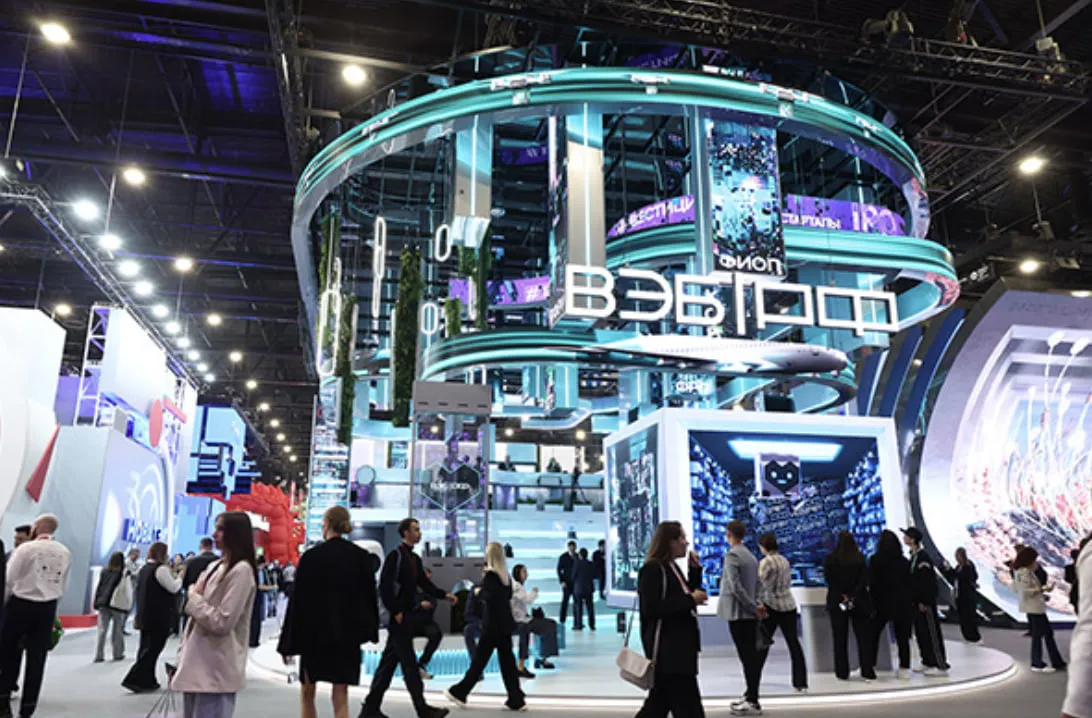SPIEF 2025, Day Two: Where Economics Meets the Tech Frontier

The second day of Russia’s flagship economic forum delivered on big themes — AI, energy, and geopolitics — wrapped in robots, data, and diplomatic nuance
Innovation Drives the Agenda
Day two of the St. Petersburg International Economic Forum (SPIEF) kept the momentum rolling with over 20,000 participants from 140+ countries gathering under the theme: “Shared Values as the Foundation for Growth in a Multipolar World.” The message? In 2025, economic power is distributed — and tech is the great unifier.
The day’s discussions zoned in on industrial automation, AI integration, and digital transformation — the building blocks of a new global economy. Renewable energy took center stage in panel discussions, highlighting the urgency of the green shift.
Geopolitics weren’t far behind. Talks on BRICS collaboration spotlighted growing ties with China and India, including joint ventures and infrastructure plays. Sessions on the Northern Sea Route reimagined Arctic logistics as a trade artery linking Europe and Asia — climate change is redrawing maps, and Russia intends to be ready.
Meanwhile, labor productivity and human capital strategy became recurring themes — with policy analysts and entrepreneurs agreeing: the future of growth is as much about people as it is about platforms.
AI, Robots, and a Dancing Cyborg
But SPIEF isn’t just about panels — it’s about presence. The SPIEF Investment & Business Expo pulled in serious attention with next-gen tech on display: smart robotics, autonomous systems, and AI-driven energy solutions.
One unlikely star? A humanoid robot named Volodya, who stunned the press by breaking into a traditional Lezginka dance at a media dinner. It wasn’t just showmanship — it was a pointed symbol of Russia’s ambitions in robotics. Volodya's presence onstage became a media magnet and underscored the nation's pivot toward deep tech innovation that’s both industrial and cultural.
These moments weren’t lost on investors. Russia's push to position itself as a global tech power — not just a resource economy — is drawing capital from unlikely places, particularly across the Global South.
Global South In, Europe Recalibrates
This year’s SPIEF was notably global — with high-level delegations from China, India, Turkey, Iran, Egypt, and the UAE reinforcing a pivot toward South-South cooperation. Bahrain, serving as the forum’s guest country, played a crucial role in economic bridge-building with Moscow.
Despite limited Western attendance, SPIEF made room for pragmatic engagement. Italy was a standout, with its business community engaging in trade talks and even opening a new Italian restaurant during the event. Antonio Fallico, president of Exploring Eurasia, captured the sentiment: “SPIEF creates unique business windows, even in complex geopolitical times.”
Beyond Business: Culture and Connection
In classic SPIEF fashion, the tech talk was balanced with soft power. Cultural programming — concerts, exhibitions, and culinary diplomacy — created space for informal alliances and human-level diplomacy. Volodya’s dance wasn’t the only performance that night, but it was the one people talked about the next morning.
The Big Picture
Day two confirmed SPIEF 2025’s relevance as a platform where economic ambition and technological imagination meet. With AI, energy transition, and multipolar cooperation driving the agenda, Russia is signaling a strategic pivot: toward new partnerships, new technologies, and a redefined place in the global economy.
The forum runs through June 21 — and if day two is any indication, the deals and announcements to come could shape not just markets, but mindsets.









































